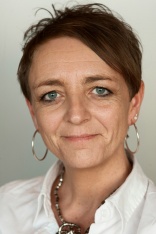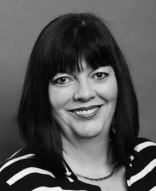Home › blog › 2024 › June › 4th › green is the new black
Green is the new black
4th of June 2024 Article by Lotte Printz
The cleaning industry gathers at a seminar with a ‘green’ focus. Lotte Printz in Denmark reports from the event.
As the conference auditorium is filling up this early spring Friday, there are various reliable indicators that this is a ‘green’ event. Some seminar goers are flashing shirts and bags made from recycled tea towels and a majority of attendees turn up with the reusable coffee cups handed out as they arrived the previous day.
Green is the New Black is the name of this year’s two-day seminar held by the Danish Association for the Technology of Cleaning and Maintenance (DRF), and the first speaker to enter the stage on this second day is a media celebrity known as ‘The Farmer’ named after the award-winning TV programme in which he pursues his dream of becoming self-sufficient.
In this context, he shared with the audience his views on how to live more sustainably, pointing out, among other things, that the way we build our houses and office buildings in this first world society doesn’t do much good for the environment. Despite what we might think. And the average family home is both bigger and better built than our real needs. So families spend half their time at home trying to find other family members, the other half on cleaning the house. A heartfelt joke that might have touched a raw nerve with some, but also filled the auditorium with laughter.
‘The Farmer’ also took part in the following panel discussion on green transition with five representatives from the cleaning industry and got a bit worked up when one of them noted that the transition is a journey.
“You cannot take a journey in a world in flames,” he remarked and stressed that he backs regulatory measures in this area: as human beings we are not as much in harmony with nature as we think and we simply don’t know how to handle it when given a choice.
The panel had different views on regulatory measures, but generally agreed there was little choice in going ahead with a green transition.
“Financially it pays off as well,” one company owner who’s worked with environmentally friendly solutions for more than 15 years, said.
While the only female in the panel emphasised it shouldn’t be viewed from a financial perspective only. As an example, using less chemical would lower sick leave and eventually have a positive impact on recruitment. Another talking point was ESG which one suggested SMEs should be exempt from as it is both time-consuming and resource intensive. A view no one else on the panel shared.
The battle on words, as you might call it, that fired up ‘The Farmer’ in the panel, was also addressed on the first day of the seminar when the author of Climate Communication told the attendees to be careful using words such as sustainable or carbon neutral when marketing their products or companies. There’s too much greenwashing in the industry and it may backfire – both in the courts of law and with customers and consumers – so stick to the plain truth and do a proper clean-up, she recommended!
To end on a positive note, cup washing was highly reduced at the seminar. Due to the reusable cups handed out, only 46 ordinary coffee cups had to be washed up compared to 600 cups at similar events, staff reported! Attendees left with plenty of ‘green’ input. Whether they left with the cups and will actually reuse them at the next seminar remains to be seen.









